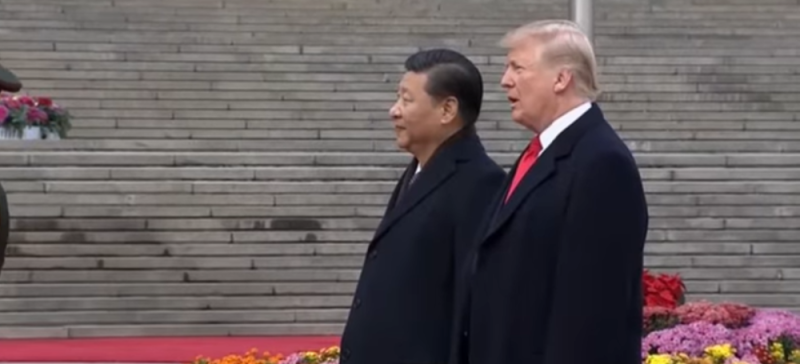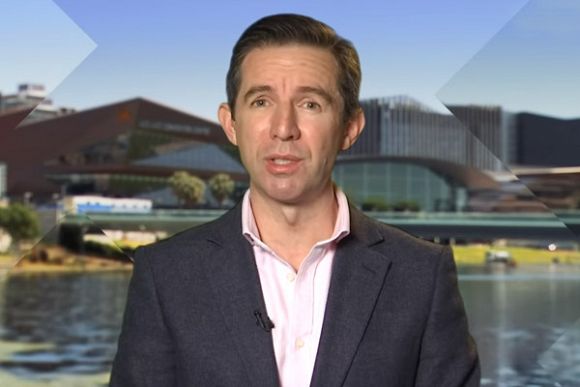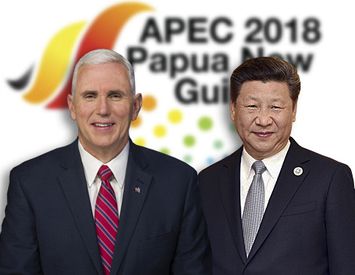Journalism can never be totally objective.
Personal worldviews, the editorial policy of the particular publication and political considerations all come into play.
The best we can hope for when picking up our daily paper is that an attempt has been made to present opinions with at least a passing nod to objectivity. That should not be too much to ask but increasingly opinion is clearly just that: opinion.
What happens when propaganda replaces journalism?
An opinion piece appeared in The Age and The Sydney Morning Herald on the 29th September entitled ‘Under cover of COVID there's been troubling news about tyranny's rise'. It is a blend of half facts and distortion to deliver a politically manipulative message. Some of the sources used were rather dubious.
The piece is a telling illustration of The Age's and The Sydney Morning Herald's position on China.
It is hardly what we might expect from the international editor of a prestigious newspaper, but Peter Hartcher has been resolute in his anti-Chinese rhetoric for so long that nothing should surprise.
What is disturbing in the article are the misrepresentations and half-truths. We are told that a ‘post-Cold War flourishing of democracy’ ground to a halt as a result of the Global Financial Crisis. However, this ‘flourishing’ was part of a strategic U.S. policy aimed at promoting and exporting western democracy.
It was designed to appear benign, but it came with significant economic strings attached and often meant forced regime change. A casual glance at the last period; blood-stained and tragic, gives the lie to any altruism on the part of the U.S. An implosive economic crisis was not the cause of the policy change. The policy changed because Washington was forced to accept that it was a failed policy.
This broadly acknowledged fact was ignored in the article. Instead, there was a leap from a misrepresentation to the conclusion that ‘freedom is in retreat. Tyranny is on the rise'. This is doubtless the case, but why? Could it have something to do with that same economic crisis? The capitalist world economy has been in a near-constant state of crisis since the mid-1970s.
It becomes easier to point the finger at this leader or that political movement without pausing, even for a moment to ask why and what is the motivation. The findings of the Gothenburg University’s Varieties of Democracy Report are used to provide simplistic answers that can be bundled up, packaged and sold on to what the author believes to be a credulous audience.
At a pinch, simplistic responses to complex questions might be forgiven but the article seamlessly moves into rather murky waters. Hartcher shifts his focus to a report: Freedom in the World from Freedom House.
We are now shifting from simplistic reporting to the use of disreputable and dubious sources. Freedom House is a U.S.-Government funded operation that has been long criticised for its partisanship and involvement in clandestine operations seeking to undermine states.
Famously, the Financial Times exposed Freedom House’s State Department funding of anti-Iranian activities. It publishes a monthly China Media Bulletin. This publication has become something of a "go-to" source for those wanting to fan the flames of anti-China rhetoric. Many of their pieces make life that much easier for "columnists" whose purpose it is to sow discord.
And sowing discord has become the stock-in-trade for much of the media. China’s new National Security Law is clearly a repressive piece of legislation, but in the hands of Hartcher, it is something quite remarkable.
He writes that:
'Even more disturbing, Xi claimed the National Security Law he imposed on Hong Kong was applicable worldwide. In other words, claiming extraterritorial jurisdiction over all of the Earth and all its peoples.'
Damning evidence indeed and evidence that warrants the most severe response from the "free world". Hartcher does not quite say but implies that China is prepared to ignore the territorial integrity of other states in pursuit of its hegemonistic goals. It is deliberately confusing and dangerously so.
But what does that law actually state and what does the much-criticised article 38 of the Chinese National Security Law effectively mean?
Chinese citizens are deemed to be subject to Chinese law, whether they be in China or living abroad. Laws are so often able to be interpreted to suit the needs or possibly the whims of governments. Article 38 deserves criticism. It implies that Chinese law will have long arms. Such a law seems to put China beyond the pale and proves its totalitarianism, its ruthlessness and its disregard of freedom and international norms of behaviour.
And this is true. However, the critics need to be reminded about stones and glasshouses. The U.S. Government has conducted extrajudicial killings of its citizens abroad. Drone strikes against alleged terrorists have been carried out. No capture, no trial, no chance to dispute the "evidence" or to human rights. This was done in the Obama years.
The tenor of the article also presupposes that China is the only sovereign state that considers its citizens living abroad are subject to Chinese law. This is, of course, an absurdity but for much of the media’s approach to Chinese affairs, it is important to maintain a clear focus. The important thing is to play a role in furthering discord and animosity against China.
They have, after all, been designated as our potential enemy.
Peter Hartcher’s article has stepped away from journalism and into the realms of manipulation and propaganda. A similar claim might be levied against the mainstream media's coverage of China.
Australia is presented as a beacon of liberty in a darkening world. The drums can almost be heard. The article concludes with a rousing call. 'We already know the price of liberty. Eternal vigilance.'
The author is quite right to say that. We do need to be vigilant if we prize liberty. We need to question propagandising. We need to be eternally vigilant in the face of deception and misrepresentation in the pursuit of political ends.
Dr William Briggs is a political economist whose special areas of interest lies in political theory. He has been, variously, a teacher, journalist and political activist.
Related Articles
- Yang Hengjun's release is important in making amends with China
- China policy: Our trading relationship is being ruined by the Right wing
- Anti-China narrative hits fever pitch
- The importance of making up with China
- JOHN PILGER: Another Hiroshima is coming unless we stop it now
 This work is licensed under a Creative Commons Attribution-NonCommercial-NoDerivs 3.0 Australia License
This work is licensed under a Creative Commons Attribution-NonCommercial-NoDerivs 3.0 Australia License
Support independent journalism Subscribe to IA.
















